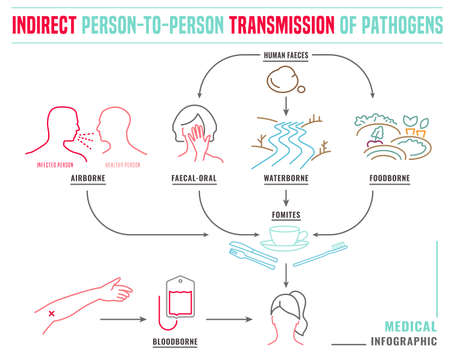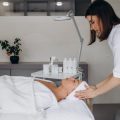Understanding Acne and Scarring in British Context
Clear skin is a universal desire, yet here in Britain, the journey towards it is shaped by our unique environment and cultural nuances. Acne is far from uncommon across the UK, affecting people of all ages, from teens grappling with hormonal changes to adults dealing with persistent breakouts. British weather, known for its dampness and unpredictable shifts, can often play havoc with our skin. The frequent rain and humidity might contribute to clogged pores, while the colder months often lead to dry, irritated skin—both of which can exacerbate acne and scarring.
Beyond the climate, our fast-paced urban lifestyles, late-night takeaways, and the comforting but sometimes oily British diet can all be contributing factors. Stress from work or studies and even the use of certain skincare products, sometimes chosen in response to our ever-changing weather, further complicate the picture. Despite its prevalence, there remains a lingering stigma around acne and scarring, often leading people to cover up or avoid discussing their concerns.
Yet, it’s essential to shift this narrative. Skin health is an important aspect of overall wellbeing, and talking openly about acne and scarring allows us to seek effective solutions without shame. By understanding the common triggers rooted in British life and climate, we’re better equipped to navigate professional treatments and foster a culture where taking care of our skin is celebrated rather than concealed.
2. Consulting the Experts: Accessing Professional Help in the UK
Embarking on a journey towards clear skin often means navigating the maze of professional support available within the UK. Your first port of call is typically your local GP (General Practitioner), who plays a crucial gatekeeping role in the British healthcare system. GPs can assess your acne or scarring, offer initial treatments such as topical creams or oral medications, and decide if further specialist intervention is necessary.
If your skin concerns persist or are particularly severe, your GP may refer you to an NHS dermatologist. This referral process can take several weeks or even months due to high demand within the NHS. Dermatologists provide expert diagnosis and access to advanced treatments, including prescription-strength retinoids, antibiotics, or procedures like chemical peels and laser therapy for scars.
For those seeking faster access or a broader range of treatments, private dermatology clinics are another avenue. While private care comes at a cost, it often means shorter waiting times and more personalised attention. Many clinics offer consultations without needing a GP referral, though it’s always wise to check their credentials and reviews before booking.
Pharmacists (often referred to as “chemists” in Britain) also play an invaluable role in skincare journeys. They are approachable experts found on every high street, ready to advise on over-the-counter solutions, recommend non-prescription treatments, or help interpret medical advice from your doctor.
The Pathway to Professional Care in the UK
| Step | Who to See | Typical Waiting Time | What to Expect |
|---|---|---|---|
| Initial Consultation | GP (NHS) | Same week to 2 weeks | Assessment, prescription treatments, possible referral |
| Specialist Referral | NHS Dermatologist | 4–18 weeks (varies by area) | Advanced diagnosis, specialist therapies, scar management plans |
| Private Consultation | Private Dermatologist/Clinic | A few days to 1 week | Bespoke treatment options, immediate care |
| Chemist Advice | Pharmacist (Chemist) | No wait – walk-in service | Product recommendations, practical guidance, medication support |
It’s empowering to know that whether you begin with your trusted NHS GP or opt for private care, each pathway is designed with your wellbeing at heart. Don’t overlook your local chemist – their accessible expertise can bridge gaps between appointments and keep your skincare routine on track as you move forward towards clearer skin.

3. Treatment Options: What’s Available in Britain
When it comes to tackling acne and scarring in Britain, the spectrum of professional treatments is impressively diverse. Each journey to clearer skin is unique, and British dermatology offers tailored approaches that blend clinical expertise with the latest advancements.
Prescribed Topical Treatments
For many of us, our first stop is the GP or a local NHS dermatologist, who may recommend topical treatments—creams or gels applied directly to affected areas. Retinoids, benzoyl peroxide, and topical antibiotics are commonly prescribed across the UK, targeting inflammation and preventing future breakouts. These solutions are often the front line for mild to moderate cases and can be conveniently picked up at your neighbourhood chemist.
Oral Medications
For more persistent or severe acne, oral medications are sometimes necessary. In Britain, options include antibiotic tablets to reduce bacteria and inflammation, hormonal therapies such as combined contraceptive pills (particularly for women experiencing hormonally-driven breakouts), and isotretinoin—a powerful medication reserved for stubborn, cystic acne under strict medical supervision. It’s important to note that these treatments require careful monitoring by a healthcare professional to ensure both safety and effectiveness.
Advanced Clinical Procedures
If scars linger or acne proves particularly tenacious, advanced clinical procedures available through private clinics or NHS referral can make a remarkable difference. Chemical peels, microdermabrasion, and laser therapy are now widely offered throughout Britain, helping to resurface the skin and minimise the appearance of both active acne and longstanding scars. For deeper pitted scars, microneedling or subcision may be recommended by experienced dermatologists in cities from London to Edinburgh.
Accessing Care Across the UK
Whether you’re navigating the NHS system or exploring private options, rest assured that British practitioners prioritise evidence-based care with a personal touch. Consultations are designed to discuss your lifestyle, expectations, and skin goals—ensuring that every treatment plan feels bespoke and approachable.
Your Next Steps
The breadth of treatment choices in Britain means you don’t have to settle for one-size-fits-all solutions. From prescription creams at your local pharmacy to cutting-edge laser therapy in Harley Street clinics, there’s an option suited to every need and skin type. Exploring these pathways with a trusted professional ensures you’re not only addressing symptoms but also building lasting confidence in your own skin.
4. At-Home Care with a British Twist
Embarking on the journey towards clearer skin isn’t solely about professional treatments; it’s also about what you do day in and day out at home. In Britain, where the climate can be damp, cold, and ever-changing, your at-home skincare routine needs to adapt accordingly. Consistency is the cornerstone of improvement, and thankfully, most essentials can be conveniently sourced from high street pharmacies like Boots or Superdrug, as well as local supermarkets.
The Power of Routine: Keeping It Simple and Effective
British skin often faces challenges such as fluctuating humidity, central heating in winter, and occasional sun in summer. To keep things manageable, focus on gentle cleansing, targeted treatments, and reliable moisturising. Here’s a straightforward table showcasing common products you’ll find across the UK:
| Step | Recommended Product | Where to Buy | Why It Works |
|---|---|---|---|
| Cleanse | Cetaphil Gentle Skin Cleanser | Boots, Superdrug | Mild formula suitable for sensitive British skin |
| Treat | La Roche-Posay Effaclar Duo (+) | Boots, Online | Addresses blemishes without harshness |
| Moisturise | CeraVe Moisturising Lotion | Tesco, Sainsbury’s | Hydrates without clogging pores; perfect for unpredictable weather |
| Protect | Garnier Ambre Solaire SPF 50+ | Supermarkets, Boots | Lightweight protection against those rare but potent British UV rays |
Lifestyle Tweaks for the British Climate
The weather here can swing from drizzly mornings to unexpected sunny spells. Adapt your habits: always carry an umbrella (rain never helps acne), avoid overheating indoors by keeping radiators moderate, and never skip SPF—cloudy days can still mean UV exposure. For those who love a good cuppa, remember that hydration is key; herbal teas are not only comforting but also beneficial for skin health.
Practical Tips Tailored for UK Living:
- Stay Consistent: Set products next to your kettle or toothbrush—make your routine as habitual as your morning brew.
- Avoid Overwashing: Twice daily is plenty; British water can be hard and stripping.
- Patience Pays Off: Results take time—just like waiting for the rain to clear on a bank holiday.
- Mind Your Linens: Change pillowcases regularly; damp weather can mean lingering bacteria.
- Embrace Local Favourites: A dab of Sudocrem (a beloved British staple) can soothe irritation in a pinch.
A Final Word on Mindful Habits
Your at-home care is more than just what you put on your face—it’s about weaving small, intentional choices into your everyday life. By embracing these uniquely British routines and products, you’re taking tangible steps towards clearer skin while celebrating a bit of local charm along the way.
5. Navigating Mental Wellbeing and Support Networks
Acne and scarring are far more than skin deep; their emotional impact can be profound, often affecting confidence, self-esteem, and social interactions. In Britain, openly discussing these feelings is becoming more accepted, yet it’s not always easy to ask for help. Understanding that you are not alone is the first step towards healing both inside and out.
The Emotional Toll: You’re Not Alone
Whether you’re a teen facing breakouts or an adult dealing with lingering scars, the mental weight can be significant. It’s natural to feel frustrated or anxious about your appearance, especially when skin conditions can attract unwanted attention or comments. Remember, British society is increasingly recognising the importance of mental health, especially when linked to visible conditions like acne.
Finding Support: Charities and Organisations
There are several UK-based charities dedicated to supporting those affected by skin conditions. Changing Faces offers tailored advice for people living with visible differences, including one-to-one support and peer groups. The British Skin Foundation provides information and campaigns to reduce stigma around skin issues. Both organisations offer practical resources to help you manage day-to-day challenges and boost your confidence.
Online Communities: Sharing Stories and Building Confidence
The digital world offers countless opportunities to connect with others experiencing similar journeys. UK-based forums such as those on Acne Support UK or dedicated Facebook groups provide a space to share stories, tips, and encouragement. Many find comfort in reading about others’ experiences, discovering that setbacks and progress are universal parts of the process.
Mental Health Resources
If you find that acne or scarring is taking a toll on your mental wellbeing, don’t hesitate to seek professional help. The NHS provides access to counselling and psychological therapies through your GP. Helplines such as Samaritans (116 123) offer confidential support for anyone feeling overwhelmed. Remember, addressing the emotional side of skin issues is just as important as any topical treatment—and there’s a wealth of compassionate support throughout Britain ready to help you navigate this journey.
6. Embracing Progress and Cultivating Confidence
The journey towards clear skin is rarely a straight line, especially here in Britain, where our weather and lifestyles can make things all the more unpredictable. As you navigate professional acne and scar management, it’s essential to document your progress—whether through photos, journaling, or simply noting how you feel about your skin each day. This habit not only highlights subtle improvements often missed in the rush of daily life but also serves as a gentle reminder that change, however gradual, is happening.
Remember to celebrate every small victory along the way. Perhaps it’s a week without a painful breakout, or maybe a patch of redness has finally faded. These moments deserve recognition. Treat yourself to something that brings you joy—be it a stroll in the park, a cosy cuppa with friends, or a new book from your favourite local shop.
Above all, embrace those quintessentially British values of self-acceptance and resilience. Our culture prizes the ability to keep calm and carry on, even when faced with challenges like persistent skin issues. By acknowledging your efforts and nurturing kindness towards yourself, you build confidence that radiates beyond your complexion.
Your story is uniquely yours—every freckle, scar, and triumph is woven into the tapestry of who you are. Clear skin is just one chapter; cultivating self-belief and embracing your authentic self are lifelong journeys worth cherishing.


